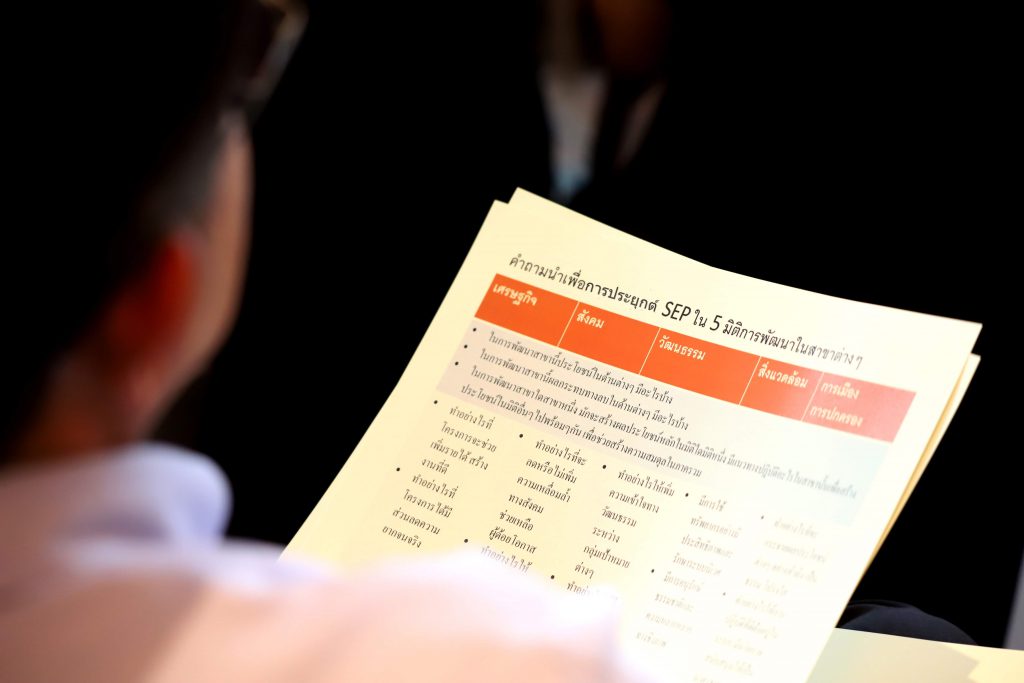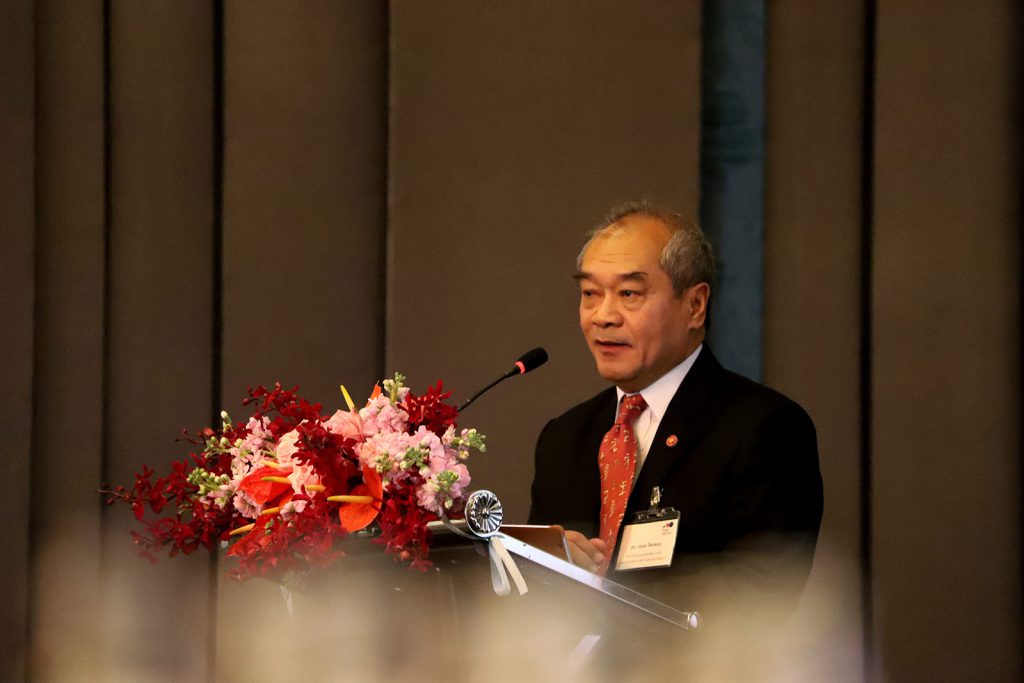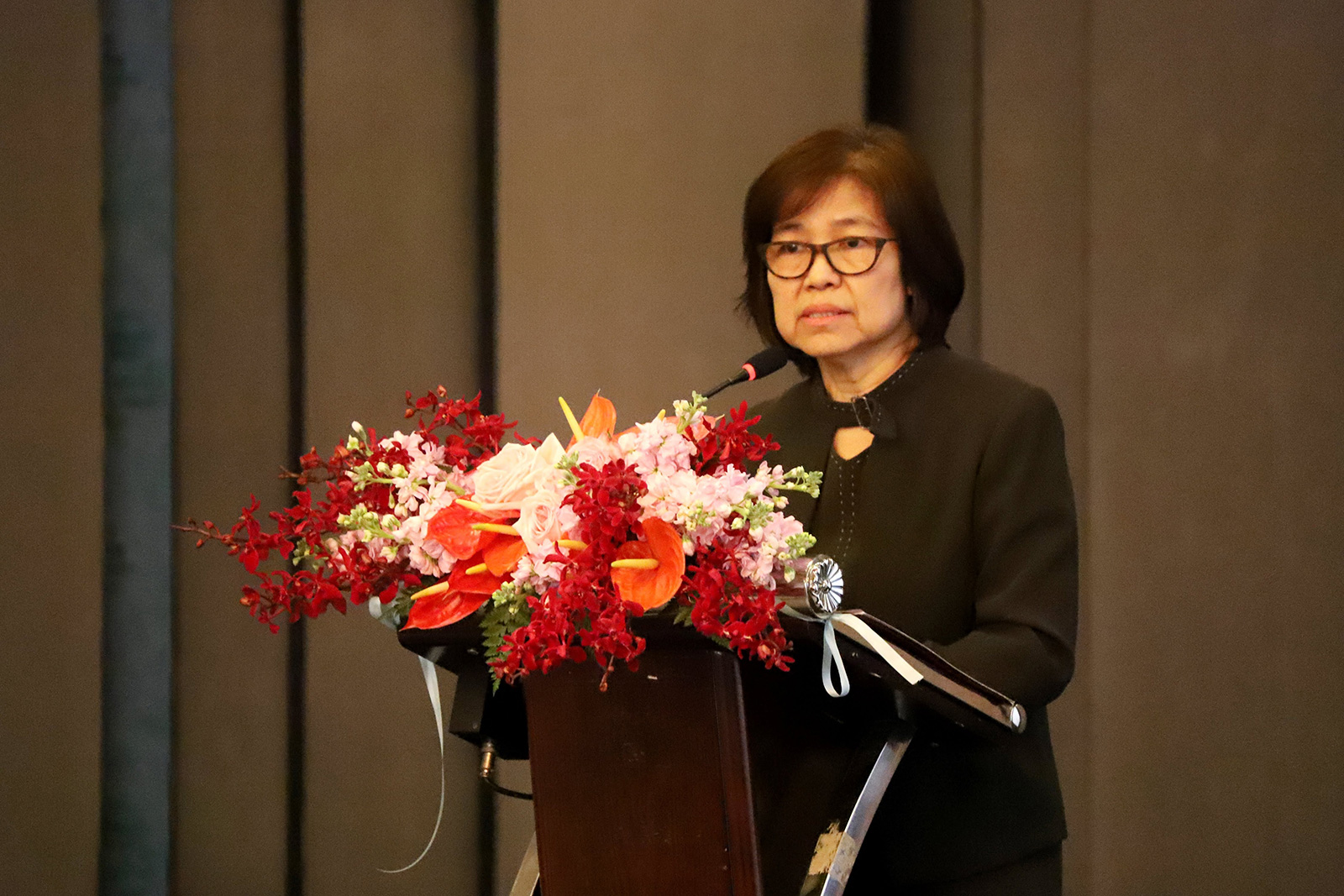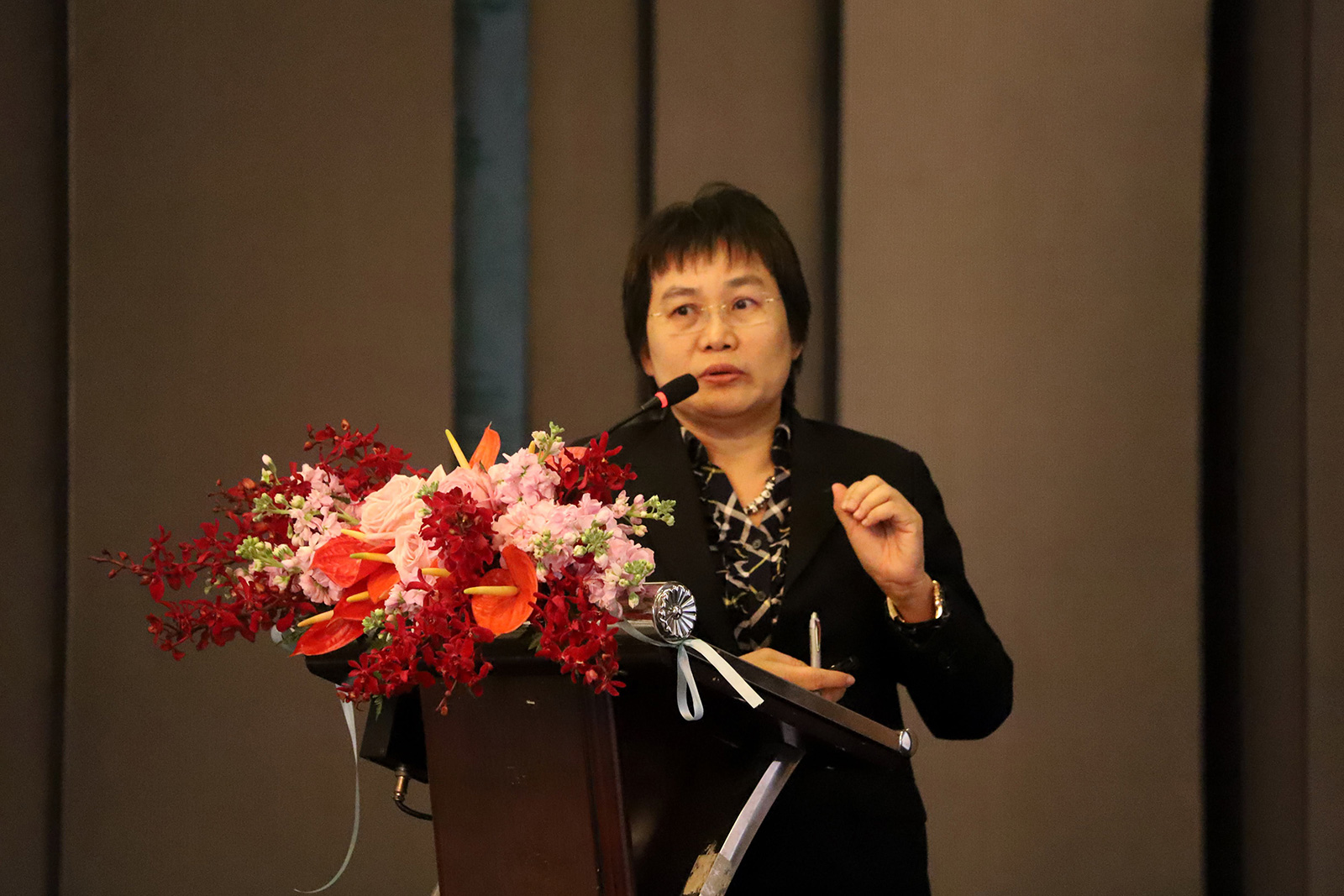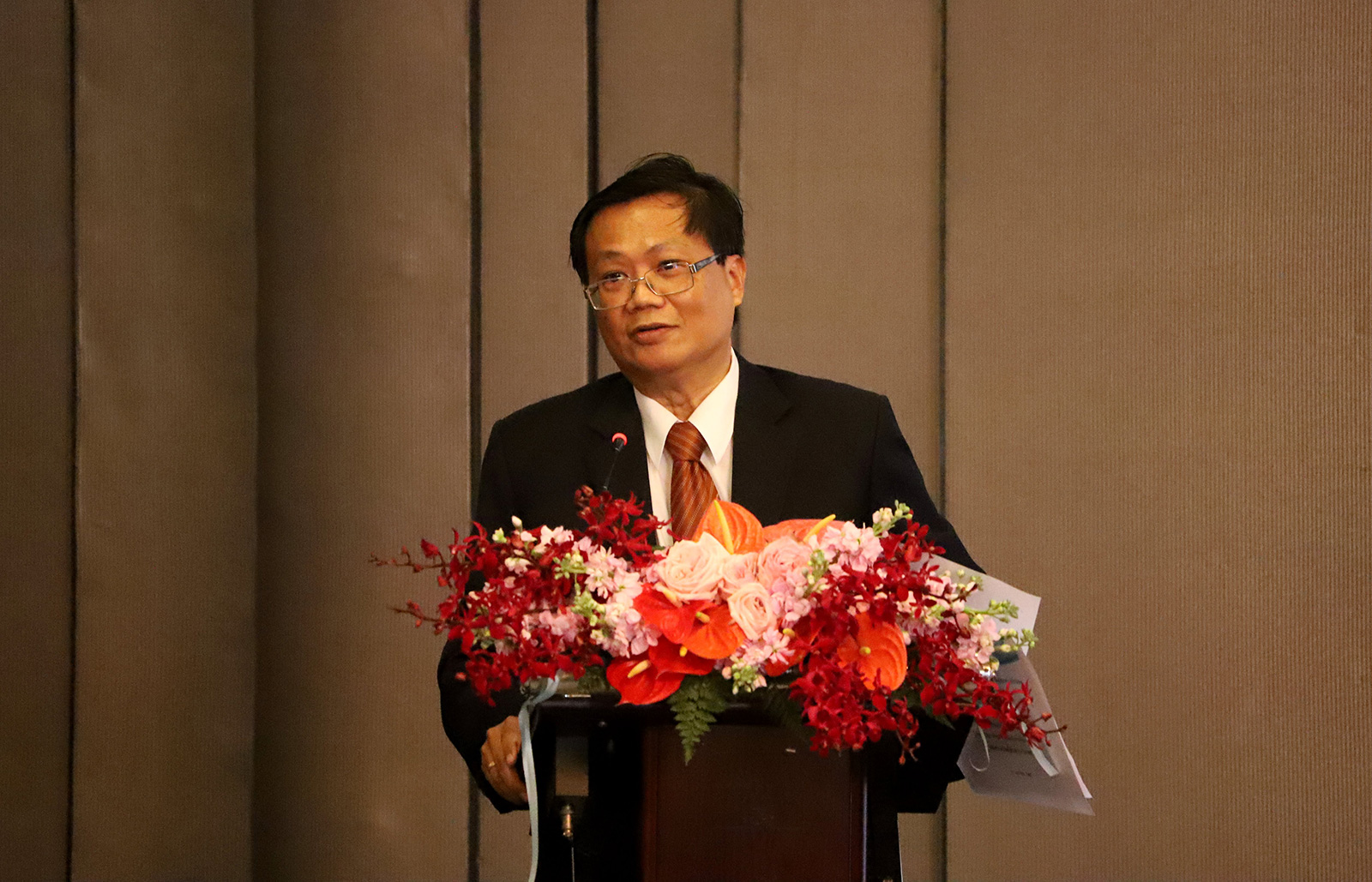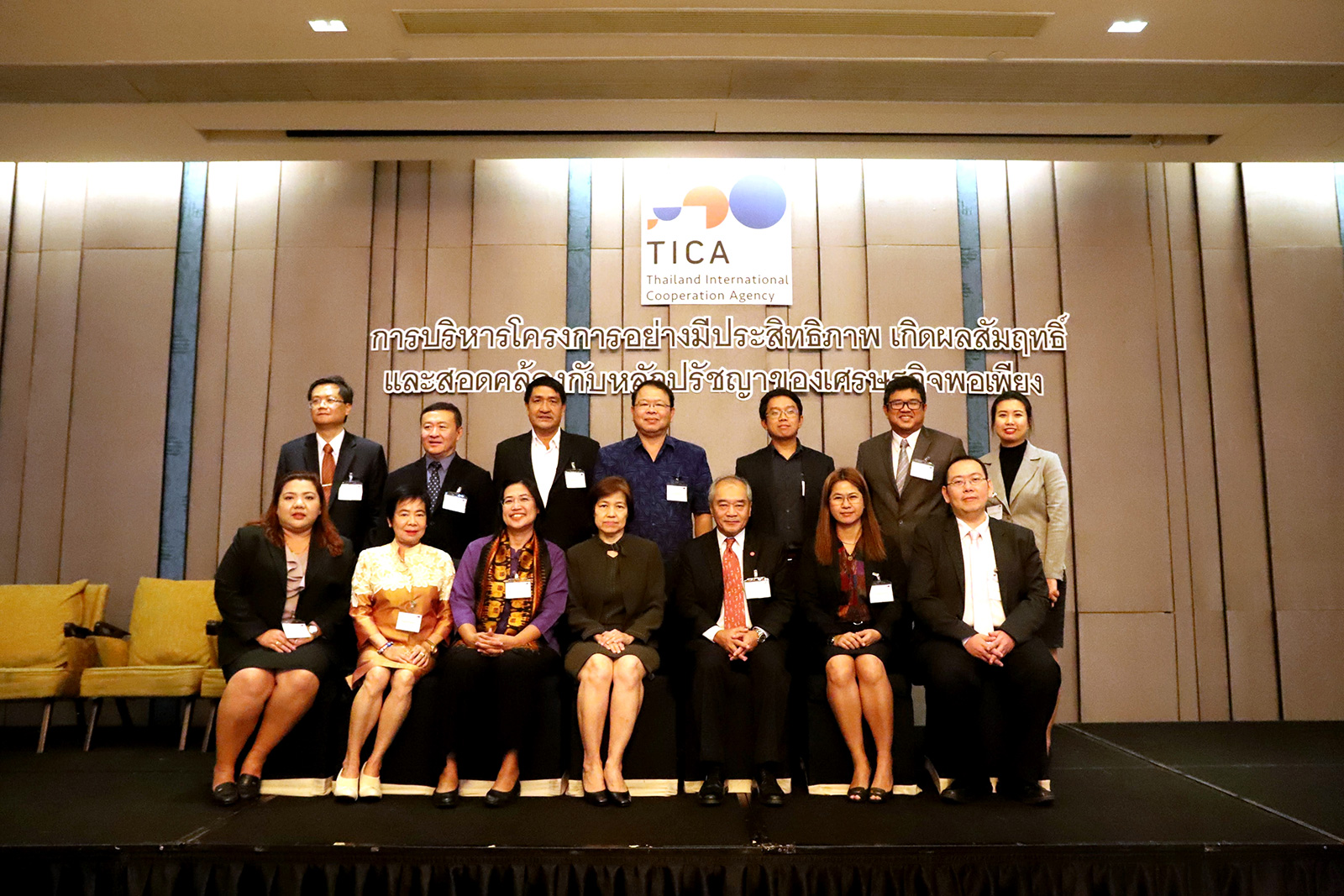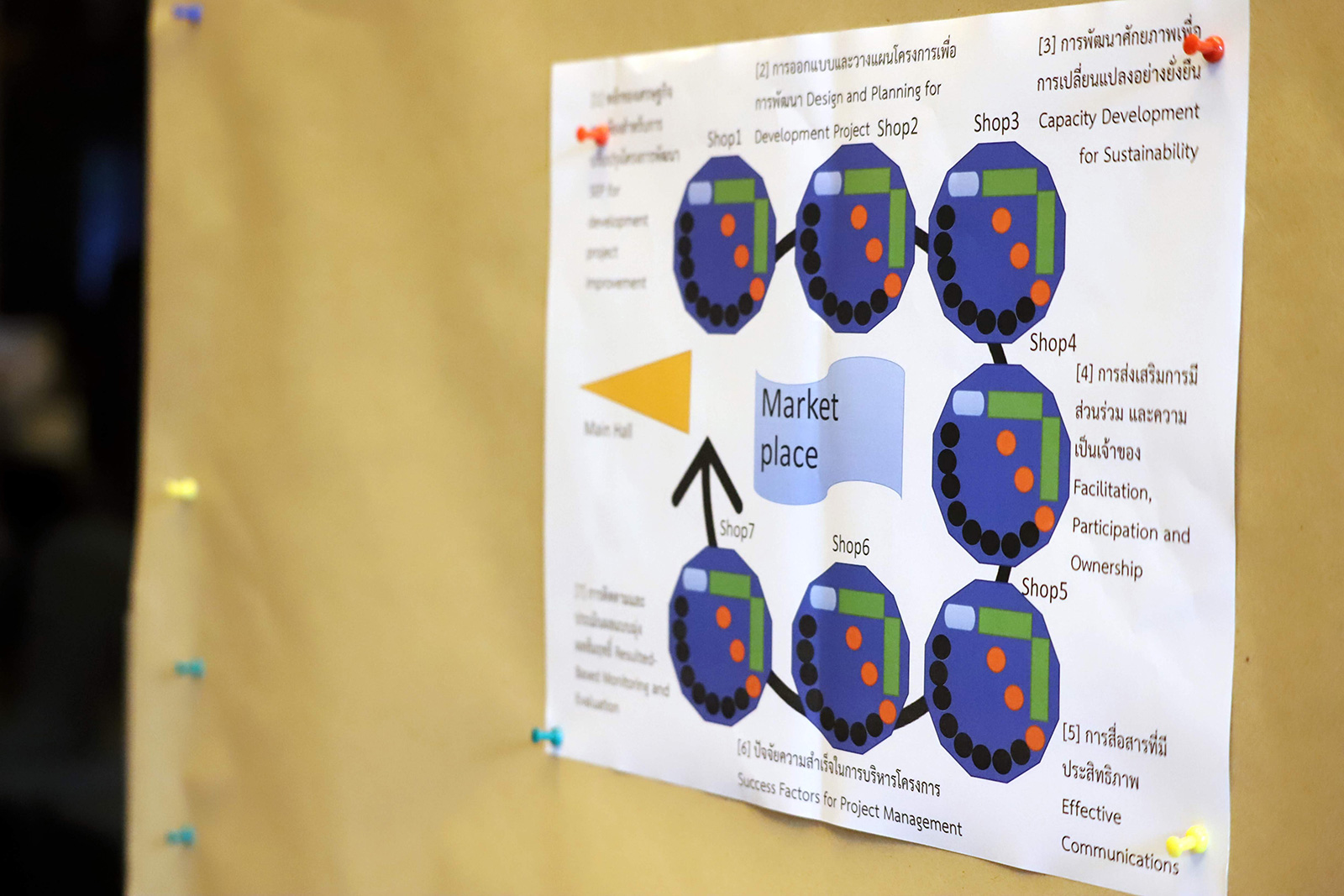Experts from implementing agencies, namely, the Department of Agriculture, the State Audit Office of the Kingdom of Thailand, Sukhothai Thammathirat Open University, and the Community-Based Tourism Institute shared their experiences of integrating SEP concepts with international cooperation project management in different countries during the panel discussion session.
The panel discussion was followed by a session called Market Place, where participants could choose to join 4 out of 7 stations featuring different topics to learn and exchange principles and tools that are useful for managing and implementing development cooperation projects. The topics featured in the 7 stations were 1) SEP; 2) Design and Planning for Development Projects; 3) Capacity Development for Sustainability; 4) Facilitation, Participation and Ownership; 5) Effective Communications; 6) Success Factors for Project Management and; 7) Resulted-Based Monitoring and Evaluation.
The last 2 sessions of the event provided opportunities for the participants to suggest good practices for international cooperation projects to achieve the goal across 5 dimensions; relevance; effectiveness; efficiency; sustainability; and impact prospect; and to provide recommendations for the guidelines for cooperation among involved agencies to increase its level of effectiveness. TICA expected that the lessons learned, good practices and knowledge shared in this forum would help shape clearer and more effective international cooperation planning and direction among the partners involved.
